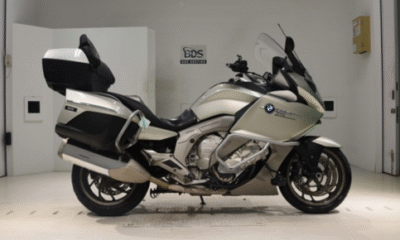Business
The Ultimate Guide to Vegan Hypoallergenic Baby Formulas: Everything You Need to Know
Vegan hypoallergenic baby formulas are specially designed to provide essential nutrients to infants who may have allergies or sensitivities to common ingredients found in traditional baby formulas. These formulas are free from animal products and are made with alternative sources of protein, such as soy, pea, or rice protein. They are also free from common allergens such as dairy, lactose, and gluten, making them suitable for babies with food sensitivities or allergies. Vegan hypoallergenic formula is formulated to meet the nutritional needs of infants while minimizing the risk of allergic reactions, making it a popular choice for parents who are looking for alternative feeding options for their little ones.
These formulas are often recommended for babies who have been diagnosed with cow’s milk protein allergy (CMPA) or lactose intolerance, as they provide a safe and nutritious alternative to traditional dairy-based formulas. Vegan hypoallergenic baby formulas are also suitable for families who follow a vegan lifestyle and want to raise their children on a plant-based diet. It’s important to note that these formulas should only be used under the guidance of a healthcare professional, as they may not be suitable for all infants. Understanding the specific needs of your baby and consulting with a pediatrician is crucial when considering the use of vegan hypoallergenic baby formulas.
What Makes a Baby Formula Vegan and Hypoallergenic?
Vegan hypoallergenic baby formulas are made with carefully selected ingredients that are free from animal products and common allergens. These formulas typically use plant-based proteins, such as soy, pea, or rice protein, as a substitute for dairy-based proteins found in traditional baby formulas. In addition to alternative protein sources, vegan hypoallergenic baby formulas are also free from lactose, dairy, and gluten, making them suitable for babies with food sensitivities or allergies. These formulas are fortified with essential nutrients such as vitamins, minerals, and fatty acids to support the healthy growth and development of infants.
The production process of vegan hypoallergenic baby formulas also plays a crucial role in ensuring their safety and suitability for infants with allergies or sensitivities. Manufacturers take great care to prevent cross-contamination with allergens during the production of these formulas, and they adhere to strict quality control measures to minimize the risk of allergic reactions. The ingredients used in vegan hypoallergenic baby formulas are carefully selected and tested to ensure their safety and nutritional adequacy for infants. These measures help to make vegan hypoallergenic baby formulas a safe and reliable feeding option for babies with specific dietary needs.
The Effectiveness of Vegan Hypoallergenic Baby Formulas
Vegan hypoallergenic baby formulas have been shown to be effective in providing essential nutrients to infants while minimizing the risk of allergic reactions. These formulas are designed to meet the nutritional needs of babies who have allergies or sensitivities to common ingredients found in traditional baby formulas, such as cow’s milk protein or lactose. Studies have shown that vegan hypoallergenic baby formulas can support healthy growth and development in infants with food allergies or intolerances, making them a valuable feeding option for families facing these challenges.
In addition to providing essential nutrients, vegan hypoallergenic baby formulas have also been found to be well-tolerated by infants with allergies or sensitivities. The carefully selected ingredients and production processes used in these formulas help to minimize the risk of allergic reactions, making them a safe and reliable choice for parents who are looking for alternative feeding options for their little ones. However, it’s important to note that the effectiveness of vegan hypoallergenic baby formulas may vary from one infant to another, and they should only be used under the guidance of a healthcare professional.
Common Ingredients in Vegan Hypoallergenic Baby Formulas
Vegan hypoallergenic baby formulas are made with a variety of carefully selected ingredients that provide essential nutrients to support the healthy growth and development of infants. These formulas typically use plant-based proteins, such as soy, pea, or rice protein, as a substitute for dairy-based proteins found in traditional baby formulas. In addition to alternative protein sources, vegan hypoallergenic baby formulas are also fortified with essential vitamins, minerals, and fatty acids to meet the nutritional needs of infants.
Some common ingredients found in vegan hypoallergenic baby formulas include organic brown rice syrup, organic high oleic sunflower oil, organic coconut oil, organic soy protein isolate, and various vitamins and minerals such as calcium, iron, zinc, and vitamin D. These ingredients are carefully selected and tested to ensure their safety and nutritional adequacy for infants with allergies or sensitivities. Manufacturers take great care to prevent cross-contamination with allergens during the production of these formulas, and they adhere to strict quality control measures to minimize the risk of allergic reactions.
Potential Benefits and Drawbacks of Vegan Hypoallergenic Baby Formulas
Vegan hypoallergenic formula offers several potential benefits for infants with allergies or sensitivities. These formulas provide essential nutrients while minimizing the risk of allergic reactions, making them a safe and reliable feeding option for families facing these challenges. Vegan hypoallergenic baby formulas are also suitable for families who follow a vegan lifestyle and want to raise their children on a plant-based diet. Additionally, these formulas can provide peace of mind for parents who are concerned about the potential risks associated with traditional dairy-based formulas.
However, there are also some potential drawbacks to consider when using vegan hypoallergenic baby formulas. Some infants may have difficulty tolerating certain ingredients found in these formulas, leading to digestive discomfort or other adverse reactions. Additionally, vegan hypoallergenic baby formulas may be more expensive than traditional dairy-based formulas, which can be a concern for some families. It’s important to carefully consider the potential benefits and drawbacks of using vegan hypoallergenic baby formulas and consult with a healthcare professional before making any feeding decisions for your infant.
How to Choose the Right Vegan Hypoallergenic Baby Formula for Your Child
Choosing the right vegan hypoallergenic baby formula for your child involves careful consideration of their specific dietary needs and any potential allergies or sensitivities they may have. It’s important to consult with a pediatrician before making any feeding decisions for your infant, as they can provide valuable guidance based on your child’s individual circumstances. Your pediatrician can help you determine whether a vegan hypoallergenic baby formula is suitable for your child and recommend specific brands or formulations based on their nutritional needs.
When choosing a vegan hypoallergenic baby formula, it’s important to carefully review the ingredient list and nutritional information to ensure that it meets the specific dietary requirements of your child. Look for formulas that are free from common allergens such as dairy, lactose, and gluten, and that are fortified with essential nutrients such as vitamins, minerals, and fatty acids. Consider your child’s age and any specific dietary restrictions they may have when selecting a formula, and be sure to follow the guidance of your pediatrician throughout the process.
Consultation with a Pediatrician: Important Considerations for Using Vegan Hypoallergenic Baby Formulas
Consulting with a pediatrician is an important consideration when using vegan hypoallergenic baby formulas for your child. Your pediatrician can provide valuable guidance based on your child’s individual circumstances and help you determine whether a vegan hypoallergenic baby formula is suitable for their specific dietary needs. They can also recommend specific brands or formulations based on your child’s age and any potential allergies or sensitivities they may have.
In addition to providing guidance on choosing the right formula for your child, your pediatrician can also monitor your child’s growth and development while using a vegan hypoallergenic baby formula. They can help you identify any potential issues or concerns related to your child’s feeding regimen and make adjustments as needed to ensure their nutritional needs are being met. Regular check-ups with your pediatrician can provide peace of mind and reassurance that you are providing the best possible care for your infant when using a vegan hypoallergenic baby formula.
In conclusion, vegan hypoallergenic baby formulas offer a safe and reliable feeding option for infants with allergies or sensitivities. These formulas are made with carefully selected ingredients that provide essential nutrients while minimizing the risk of allergic reactions, making them a valuable choice for families facing these challenges. However, it’s important to consult with a pediatrician before making any feeding decisions for your infant and carefully consider the potential benefits and drawbacks of using vegan hypoallergenic baby formulas. With the guidance of a healthcare professional, you can make informed decisions about your child’s feeding regimen and provide them with the best possible care based on their individual circumstances.
















You must be logged in to post a comment Login